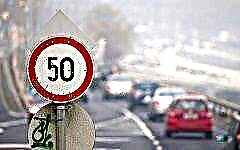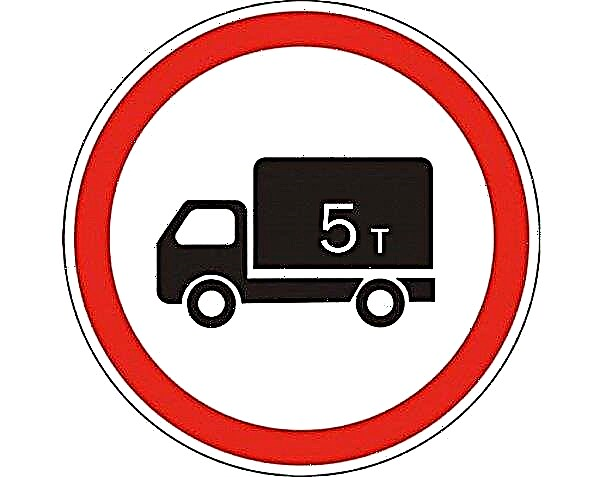
The content of the article:
- Current situation
- Legal subtleties and implications in the long term
- Implementation of the bill and elimination of legal contradictions
The deterioration of the general economic situation in the country gives rise to the need to increase the tax base, as well as to increase the revenue side of the budget due to the introduction of new excise taxes, fines and fees. Often, activities carried out in this direction can have much more negative consequences and increase social tension.
One of such proposals is an initiative to ban the registration of trucks with a total mass of over 5 tons by private individuals. Let's try to understand the causal relationships that determine such amendments to the legislation.
Current situation

The road transport business is a fairly profitable field of activity, especially if it is focused on developing areas of the economy, be it agriculture or construction. However, the constant rise in fuel prices, an increase in fines and the introduction of toll fares have hit this area significantly.
The existing legislation has a number of exemptions in terms of fines. For example, for overload for legal entities and individuals: for the first, its amount is 200-300 thousand rubles, and for the second - 3-5 thousand, the same is true with the tax base. All this, combined with the deterioration of the state of business in Russia, led to a massive departure of transport workers into the shadow sphere.
Cars are re-registered as private individuals and business activity is practically not advertised anywhere. This causes serious damage to the revenue side of the budget, which is why the lawmakers, instead of developing effective control mechanisms, made the simplest decision - to prohibit private owners from owning trucks if they are not intended for official use in business.
The head of the State Duma Committee on Transport Yevgeny Moskvichev announced the active consideration of such a controversial initiative. As arguments “for”, statistical data are cited that almost 70% of accidents with the participation of trucks occur in cars registered with private individuals.
In addition, according to officials, the individual owner is not able to provide timely and high-quality repair and maintenance of expensive equipment, as a result of which malfunctions occur that lead to an accident.
The last statement is quite controversial, it appeals to such popular topics as safety on highways and saving the lives of ordinary people, but it does not have any official statistics behind it, and from a logical point of view it does not stand up to criticism.
An individual who owns a freight vehicle, unlike a large enterprise, is well aware that his income is directly linked to the technical health of just one vehicle. In addition, as the owner, it is in his own interests to carefully monitor his property and make decisions about repair and maintenance, not only based on economic indicators, but also on practical experience.
The positive aspects of private property include the flexibility of the organization of repair work in terms of the choice of the contractor, since there is no conclusion of long-term service contracts here, and if the quality of the work does not suit the customer, the issue is resolved promptly.
As for the statistics on road accidents, before taking it for truth, one should compare the data on the number of freight vehicles registered for individuals and legal entities.
Legal subtleties and implications in the long term

Formally, the desire to make legal the motor transport business, which is rapidly leaving the shadow sector of the economy, is quite logical and reasonable, but the mechanism used for this may have the opposite results.
One of the main reasons that influenced the initiative is the overloading of vehicles by private owners, although this is also abused by official organizations. The fact is that it is possible to maintain profitability and ensure the competitiveness of transportation in the face of rising fuel prices and the introduction of toll payments by increasing the weight of the cargo, which ultimately allows you to reduce transportation costs, as a constituent element in the cost of any product.
At the same time, overloading a heavy truck is less dangerous, since it has a greater margin of safety, since the platform itself, which underlies it, is often used to produce models of various carrying capacities.
Now let's return to the bill itself, which prohibits the registration of vehicles with a total weight of over 5 tons by private individuals. In fact, this is a ban on the use of not only heavy, but also medium-duty vehicles, which are so popular in rural areas.
Since the use of these machines is carried out seasonally, as the need arises, as well as by small businesses, for which the legalization of one-time transportations is impractical and unprofitable, the widespread use of small-tonnage vehicles with trailers and large overloads will increase, which will significantly worsen road safety.
It is worth noting that the introduction of the bill is still being postponed - the fact is that the registration of trucks by private individuals for the purpose of their commercial use provides for the acquisition of a special patent, the issuance mechanism of which has not yet been worked out.
An alternative option is also being considered - toughening of liability for committed offenses for individuals and bringing the amount of fines to the level established for organizations.
According to Valeriy Voytko, the coordinator of the Dalnoboyshchik Association, both the first and the second mechanism for implementing the concept of legalizing commercial transportation will lead to the elimination of competitive inequality in the cost of services, but not to change the situation on the roads.
This is confirmed by the words of the Chairman of the Interregional Trade Union of Professional Drivers Alexander Kotov, who, based on the available statistical data, concludes that overloading and violation of the work and rest regime are characteristic of all transport workers, regardless of the form of ownership, which is due to economic necessity, and not weakened control of this area.
Moreover, if we take into account the fact that, for example, more than 70% of truck tractors are registered with private individuals, it is quite logical that the number of accidents with their participation will be higher.
Many experts take into account the general economic situation, in which the tightening of responsibility and the introduction of additional administrative barriers are taking place. The fact is that if we analyze the experience of rapidly developing Asian countries, then the rapid growth of their economies was facilitated by the simplification of legislation and tax cuts, often to the detriment of the environment or safety. Of course, these are ambiguous mechanisms, but the tightening of legal norms during the crisis, according to Igor Nikolaev, director of the Institute for Strategic Analysis of the FBK, can significantly reduce entrepreneurial activity.
Implementation of the bill and elimination of legal contradictions

If we abstract from the economic component of the proposed bill, then, in fact, the State Duma will have to ratify at the legislative level the ban on the possession of a certain type of movable property for ordinary citizens. After all, medium-sized transport is not always used for commercial purposes; in rural areas it is an important attribute of a large personal backyard.
As for bringing the amount of fines to the level established for organizations, this move will actually put an end to small businesses, since a fine of several hundred thousand rubles will automatically lead to the bankruptcy of an organization or an officially registered entrepreneur.
Thus, for the implementation of the above-described draft law, an unsuitable moment was chosen in terms of economic aspects. Moreover, the legal act itself needs to be revised and is actually an attempt to close the gap in the legislation, which was formed due to the failure to comply with the accompanying laws.











